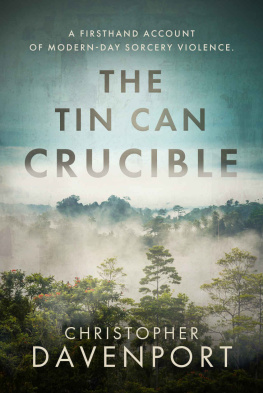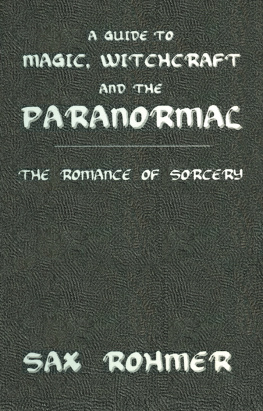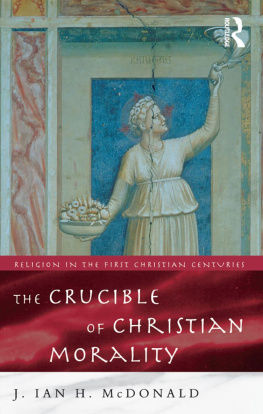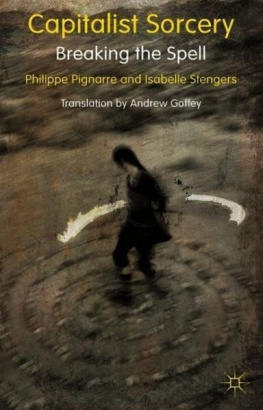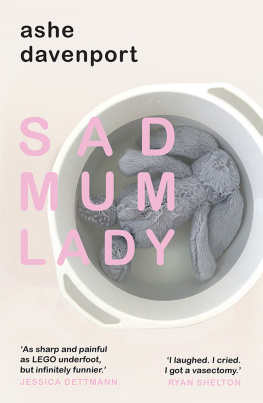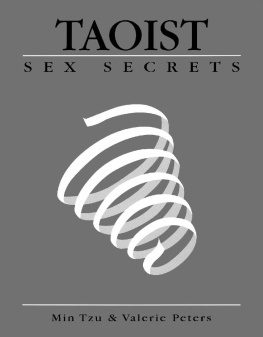Christopher Davenport - The Tin Can Crucible: A firsthand account of modern-day sorcery violence
Here you can read online Christopher Davenport - The Tin Can Crucible: A firsthand account of modern-day sorcery violence full text of the book (entire story) in english for free. Download pdf and epub, get meaning, cover and reviews about this ebook. year: 2020, publisher: Lume Books, genre: Home and family. Description of the work, (preface) as well as reviews are available. Best literature library LitArk.com created for fans of good reading and offers a wide selection of genres:
Romance novel
Science fiction
Adventure
Detective
Science
History
Home and family
Prose
Art
Politics
Computer
Non-fiction
Religion
Business
Children
Humor
Choose a favorite category and find really read worthwhile books. Enjoy immersion in the world of imagination, feel the emotions of the characters or learn something new for yourself, make an fascinating discovery.
- Book:The Tin Can Crucible: A firsthand account of modern-day sorcery violence
- Author:
- Publisher:Lume Books
- Genre:
- Year:2020
- Rating:5 / 5
- Favourites:Add to favourites
- Your mark:
- 100
- 1
- 2
- 3
- 4
- 5
The Tin Can Crucible: A firsthand account of modern-day sorcery violence: summary, description and annotation
We offer to read an annotation, description, summary or preface (depends on what the author of the book "The Tin Can Crucible: A firsthand account of modern-day sorcery violence" wrote himself). If you haven't found the necessary information about the book — write in the comments, we will try to find it.
The Tin Can Crucible: A firsthand account of modern-day sorcery violence — read online for free the complete book (whole text) full work
Below is the text of the book, divided by pages. System saving the place of the last page read, allows you to conveniently read the book "The Tin Can Crucible: A firsthand account of modern-day sorcery violence" online for free, without having to search again every time where you left off. Put a bookmark, and you can go to the page where you finished reading at any time.
Font size:
Interval:
Bookmark:
THE TIN CAN CRUCIBLE
Christopher Davenport
Copyright Christopher Davenport 2020
This edition published in 2020 by Lume Books
30 Great Guildford Street,
Borough, SE1 0HS
The right of Christopher Davenport to be identified as the author of this work has been asserted by them in accordance with the Copyright, Design and Patents Act, 1988.
All rights reserved. No part of this publication may be reproduced, stored in a retrieval system, or transmitted in photocopying, recording or otherwise, without the prior permission of the copyright owner.
For Nicole
Table of Contents
Wilt thou forgive that sin where I begun,
Which was my sin, though it were done before?
Wilt thou forgive that sin, through which I run,
And do run still, though still I do deplore?
When thou hast done, thou hast not done,
For I have more.
Wilt thou forgive that sin which I have won
Others to sin, and made my sin their door?
Wilt thou forgive that sin which I did shun
A year or two, but wallowd in, a score?
When thou hast done, thou hast not done,
For I have more.
I have a sin of fear, that when I have spun
My last thread, I shall perish on the shore;
But swear by thyself, that at my death thy Son
Shall shine as he shines now, and heretofore;
And, having done that, thou hast done;
I fear no more.
A Hymn to God the Father
John Donne (15721631)
Foreword
The island nation of Papua New Guinea lies amid the blue-green waters of the South Pacific, close to the equator, a few hundred miles north of Australia. Its tranquil shores give way to a turbulent landscape, subject to earthquakes, mudslides, and volcanic eruptions. The land wanders beneath dense emerald rainforests that drape across a central range of towering mountains, known as the Highlands. Little towns nestle here and there among the mountain ranges, isolated from one another by long stretches of steep ridges and narrow valleys, but most of the inhabitants of the Highlands live in small villages, clusters of bush-material huts circled around central patches of cleared-out forest.
One of these is a place called Mari-eka. It is a collection of a dozen huts and carefully tended gardens in the Eastern Highlands province. It may or may not still be there today Highland villages tend to be mobile, their locations determined by the uncertainties of land cultivation, hunting grounds, and tribal disturbances. But in December 1994, it was situated just outside the district capital of Goroka, a few miles off the Highlands Highway.
A few days before Christmas that year, warriors from Mari-eka raided a neighboring village and kidnapped two women, believing at least one of them to be a witch, who the villagers believed had killed an elder of their tribe. They forced the women back to Mari-eka, locked them in a hut, and accused them of the practice of sorcery. They threatened and bullied the captive women, demanding they confess. After days of abuse, one of the women could take no more, and she turned against the other. She said she knew the other woman was a witch and that she had used sanguma , black magic, to take the elders life. It was all the villagers needed to hear. They released the accuser, and they killed the woman who remained.
I know this, because I was living in the village at the time.
I had recently arrived in Papua New Guinea as a Peace Corps Volunteer, to spend two years teaching high school English at a mountain boarding school. But for my first few months, I lived in this tiny village on the edge of the world, with a family of subsistence farmers. There, in the moss-covered montane forest, amid the mud, rain, and cloud, I tried to learn their language and understand a little about their way of life.
This homestay was meant to be a waypoint of sorts, before I began my assignment a chance to acclimate to the land I would call home for the next two years. Living in the village, sharing meals with the people there, spending evenings telling stories around the fire, sleeping in a bush-material home with my host family, would help me develop a sense of perspective on where the kids at my school had come from, what their home lives were like. The idea was that I would be better able to relate to my students once I had walked a mile in their shoes.
In fact, my time in the village would become more profound than anything I could ever have imagined. In those weeks, days, and hours, I witnessed the full scope of life and death. I saw benevolent kindness, endless generosity, dedication, and hope. I saw pageantry, ceremony, intimacy, and naked honesty. I saw the dignity, frailty, and grace of a people who seemed at harmony with one another, but at odds with the world around them. I watched the sun set on an old generation and rise before a new one. I saw fear, loss, rage, betrayal, and brutality. I saw the fullness of humanity in all its manifestations; all that we aspire to be and all we are afraid to recognize in ourselves.
And when I left, I knew that I would never be the same.
I knew, too, that what had happened during my time there was something that should be talked about. A story that needed to be told. I owed it to the people with whom I had lived all of them, but especially the woman, the accused sorceress, whose name I never even knew, but who has remained in my thoughts and memories ever since.
After I finished my volunteer assignment and returned to the States, I began writing a verbatim transcript of my journal entries from those days in the village. It began as a jumbled mess of handwritten notes scrawled by the light of nothing more than the dim, flickering glow of a kerosene lantern in my Highland village. Years later, back home, it was difficult for me to make any sense of what I had written there. The scattered, nearly illegible impressions were like Rorschach inkblots, indistinct shapes and forms that, put together, suggested insights I couldnt have accurately described at the time. I had been so close to what was happening, and it was all happening so quickly, it was impossible at the time for me to have any perspective, or to make any sense of it. It took years to draw it together.
So, years passed. I wrote, and I waited, I suppose, for answers. How could this have happened? How could the people I lived with who looked out for me, cared for me, worried over me, offered to share with me everything they possessed do something so final, so terrible, so unforgivable? For the remainder of my days in the village, the rest of my time in that country, and the years that have since passed, I have tried to find some insight, or at least explanation, in the cognitive dissonance I saw there. I have had to live for twenty-five years with what happened, with what they did, and what I failed to prevent.
Much as I wanted to, I couldnt bring myself to hate the people of the village for their actions. Despite the miracle of our technological advancements, our detailed accounting of thousands of years of human and social evolution, all the studied refinements of our philosophies, I couldnt convince myself I knew something they didnt. They were no more savage than the people who had civilized them decades before, and they were no more corrupt than I am.
But how could I tell the story without vilifying or demonizing the people of my village? How could I explain that, in spite of the outrage of what had happened there, in spite of what they had undeniably done, I still somehow felt the same sense of attachment and indebtedness to them, for all they had done for me, all they had taught me, all they had given me? No one had ever shared anything so precious with me. I didnt feel I had done anything to deserve the kindness they had shown me.
I felt like I had to earn it.
Font size:
Interval:
Bookmark:
Similar books «The Tin Can Crucible: A firsthand account of modern-day sorcery violence»
Look at similar books to The Tin Can Crucible: A firsthand account of modern-day sorcery violence. We have selected literature similar in name and meaning in the hope of providing readers with more options to find new, interesting, not yet read works.
Discussion, reviews of the book The Tin Can Crucible: A firsthand account of modern-day sorcery violence and just readers' own opinions. Leave your comments, write what you think about the work, its meaning or the main characters. Specify what exactly you liked and what you didn't like, and why you think so.

